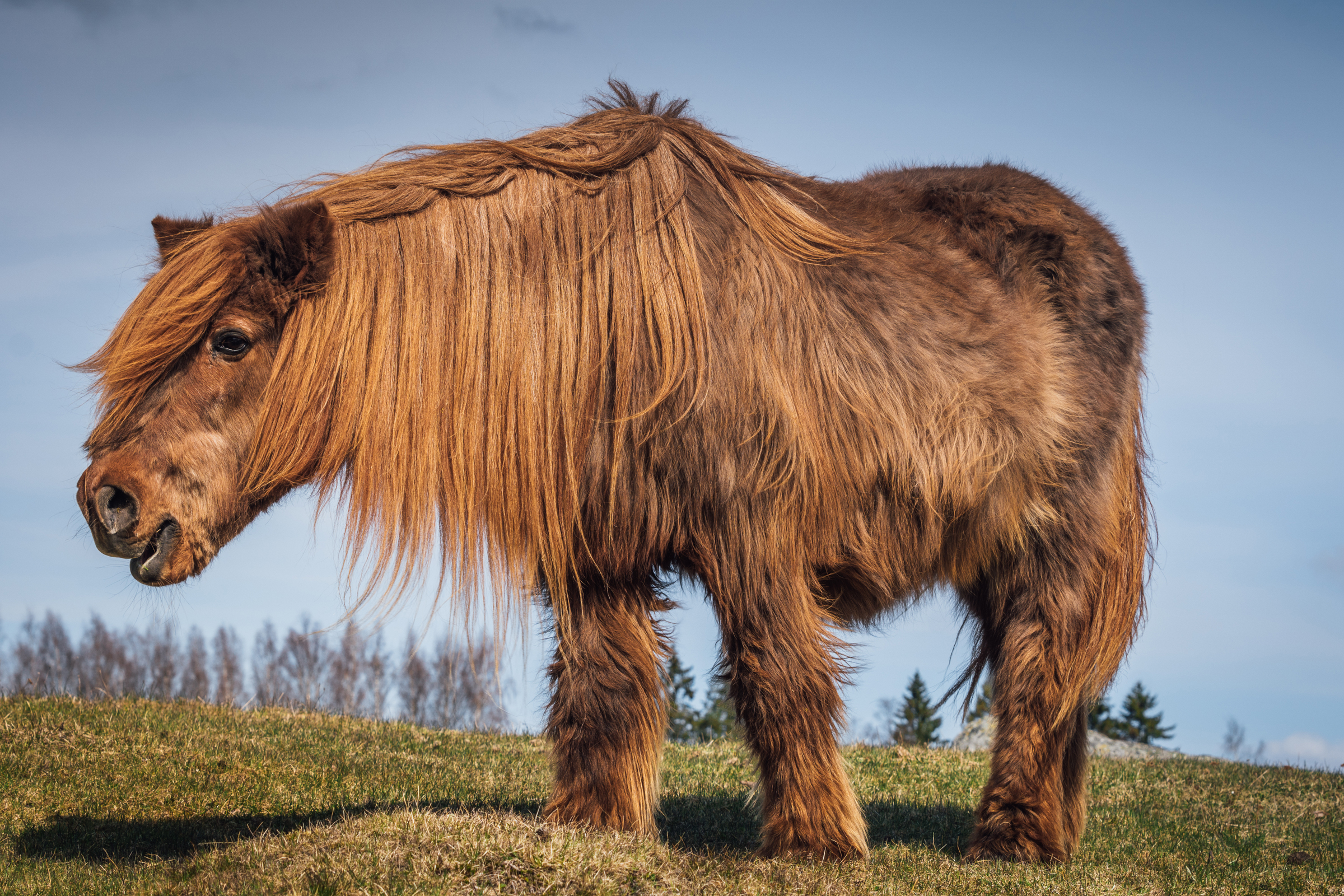
Metabolic issues are more common in older horses, especially if they are not kept active. Even active older horses can end up with problems and may need special care. “Keeping an older horse healthy is a bit easier than trying to get him back to good health. If the horse loses weight or starts having metabolic issues, detecting the problem early and being timely in intervention with proper medications, etc. can make a difference,” said Dr. Tia Nelson, a veterinarian who also owns horses near Helena, Montana.
One of the more common medical conditions that occurs in older horses is endocrine disease. The most common is PPID (pituitary pars intermedia dysfunction), often called Cushing’s disease or Cushing’s syndrome. If you have a geriatric horse and want to stay on top of any problems, it’s a good idea to have an annual veterinary physical examination performed—especially if the horse is showing any signs in physical appearance that might be associated with Cushing’s (long haircoat that doesn’t shed, frequent drinking and urination). Some veterinarians recommend a yearly test for this condition. This can be done with a blood test called an ACTH (adrenal corticotropin hormone) test. Horse owners should work with their veterinarians on this because not every horse over 18 needs to be tested, but PPID can occur in horses as young as 5.
It helps to do the test annually, however, because things can change. Just because a horse tested negative a year or two ago doesn’t mean he won’t come up positive later. If a horse does have this condition, he needs to be treated for it for the rest of his life. Treatment can greatly help improve the horse’s quality of life.
Endocrine disease can also affect the horse’s immune system. When a horse has increased cortisol production due to Cushing’s, for instance, efficiency of the immune system is diminished. It’s similar to being continually on medication with corticosteroids except in this instance the horse’s body is making the steroids. This continual supply of cortisone depresses the immune system, which can show up as wounds that don’t heal very well, dental problems, foot abscesses, etc. There’s also more risk for laminitis due to the excess cortisol in the body.


